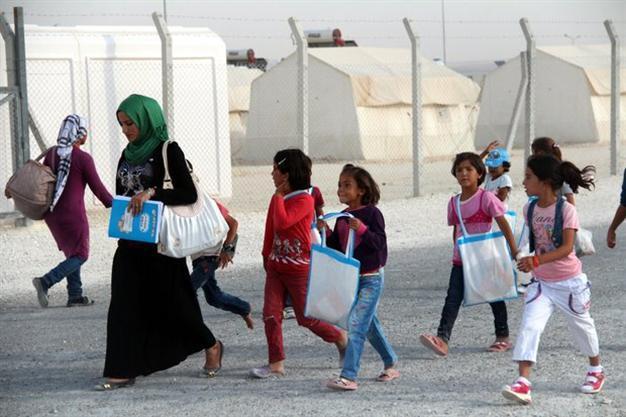Turkey’s top diplomat refutes link between EU bid and refugee deal
Deniz Zeyrek - ANKARA

AA photo
Turkey’s top diplomat has strictly ruled out arguments linking the country’s long-stalled EU membership bid and recent contacts between Ankara and Brussels for deeper cooperation in stemming the flow of migrants to Europe, as he voiced confidence the Turkish capital would definitely revive negotiations to become a member of the European bloc.
“One thing is certain, Turkey’s negotiations for full EU membership will be revived,” Turkish Foreign Minister Feridun Sinirlioğlu said on Oct. 19, as the country has been scene to a flurry of diplomatic contacts concerning a wide range of issues from its EU bid to U.N.-led reunification talks in Cyprus and from the handling of the European migrant crisis to U.S.-led efforts signaling a process in quest of “a political resolution” to the Syrian conflict.
Turkey needs to show the EU it is not a country which could “tactically” benefit from short-term goals, Sinirlioğlu underlined, just a day after German Chancellor Angela Merkel offered Turkey the prospect of support for faster progress in its bid to join the EU in return for cooperation in stemming the flow of migrants and taking back those rejected by Europe.
“Turkey’s EU membership and the Syrian refugee issue are two separate issues. However, they [EU member states] need to see that Turkey is important for Europe in regards to the refugee issue. They cannot ignore that the instability in Syria has an impact on them. The EU is not fulfilling what it is actually required to do as a favor to Turkey. The turmoil in the region will take long, maybe a decade, maybe two decades,” Sinirlioğlu said.
“Within this framework, Syrian refugees are not a domestic problem of Turkey, but are an international problem. Europeans need to do their best like we have been doing and they should share this burden in the field,” he added.
The career diplomat reiterated Ankara’s insistence on not taking the prospective EU funding for refugees from the Instrument for Pre-Accession Assistance (IPA), which is money already earmarked for Turkey as an EU membership candidate.
Turkey told the EU that accepting that fund was “out of question,” Sinirlioğlu said, adding, “The EU members have already allocated a budget of 50 billion euros for the refugee issue. They need to use that budget, but not the funds that are earmarked for us. Now, we expect an allocation of three billion euros [for the refugee issue] by the beginning of 2016 and with contributions from member countries… they may either come use it here or they may use it through us.”
Greek Cyprus’ veto
Out of the 35 chapters Turkey must conclude as part of its accession negotiations, Greek Cyprus, which officially represents the entire divided island, has blocked six.
“The negotiation process in Cyprus is underway. Either a peace agreement will be signed in March and the issue will be resolved via the holding of a referendum or the current situation will be recognized as a solution by the international community if the Greek Cypriot side rejects [the agreement]. This means that no obstacle will remain in front of Turkey’s negotiation process,” diplomatic sources said, when asked how the EU could open more accession negotiations given the Greek Cypriot side’s veto.
Meanwhile, Merkel pledged to Turkish leaders she would “do her best, including putting pressure on the Greek Cypriot side,” for the rapid opening of new accession negotiations with Turkey.
